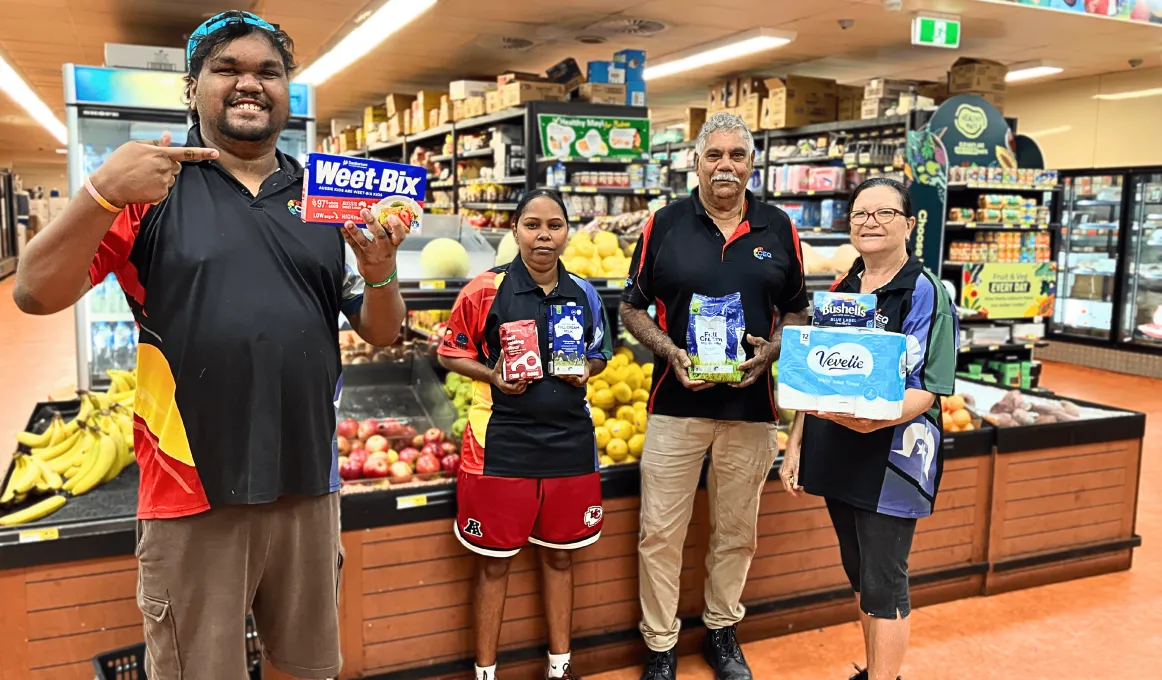Remote community stores now offering cheaper groceries

People living in remote communities across the Northern Territory, Queensland, Western Australia and South Australia will now have access to cheaper groceries, comparable to supermarket prices in urban areas.
Photo: CEQ staff at their ABIS Palm Island store with some essential items.
The first 100 community stores have joined the Low-cost Essentials Subsidy Scheme, bringing 30 essential items to remote communities at reduced prices. The expected savings for remote consumers is up to 50%.
The Scheme will mean lower priced everyday items to help families save money and have greater access to healthy food.
Outback Stores (OBS), the Arnhem Land Progress Aboriginal Corporation (ALPA) and Community Enterprise Queensland (CEQ) have been very involved in this important work.
“Since the launch of the Low-Cost Essentials Subsidy Scheme on 1 July, we have seen strong interest, with 100 stores already signing up to participate.”
“Early results are encouraging, with customers reporting savings of up to 30-50%, providing much-needed cost relief for families in remote communities,” said Michael Borg, CEO of Outback Stores.
“When we are buying food from the ALPA shops, it’s manymak [good].”
“The way I’ve been looking at the two ALPA shops in Galiwin’ku, it’s good to have lower prices because people can save to afford bigger things like washing machines, dryers,” said Don Wininba, Deputy Chair of ALPA.
“We are already hearing feedback from our customers that this subsidy is helping to ease the pressure on remote Far North Queensland families by lowering the cost of everyday groceries across our 31 stores.” Said Michael Dykes, CEO of CEQ.
The Australian Government is investing $50 million over four years to improve remote food security, including reducing the cost of essential items in up to 152 remote stores.
Find out more: Food security in remote First Nations communities | NIAA